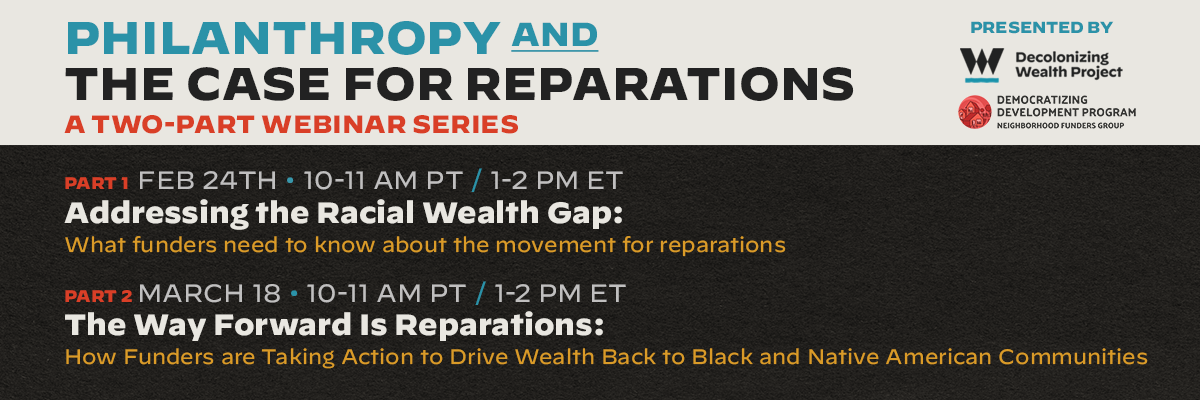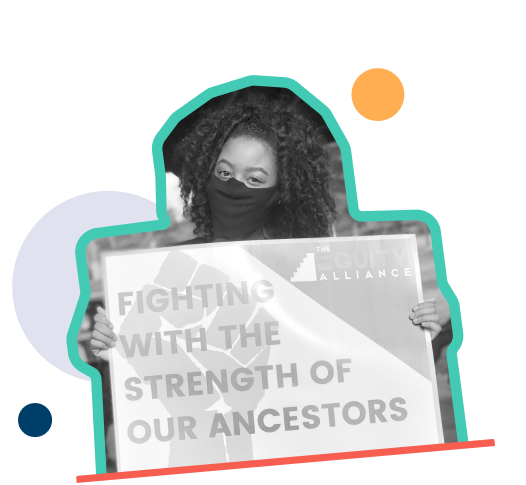
As our country heals and pivots forward under a new administration, conversations and actions for reparations for Black and Indigenous communities continue to gain unprecedented momentum.
Last year, U.S. Rep. Sheila Jackson Lee (D-Texas) introduced legislation that would fund the first commission to study and develop proposals for providing reparations to African Americans. It was reintroduced this year and is gaining traction with national support from leaders and supported by artists like Alicia Keys who are calling for Congress to support this legislation in the first 100 days.
Across the country, cities are also acknowledging reparations and taking action as well. In St. Paul, Minneapolis, Portland, Oregon, Providence, Rhode Island, Chicago, Illinois, and Burlington, Vermont are all exploring reparations as a form of racial healing after generations of institutionalized racism. Portland approved as their top racial justice measure to lobby the federal government on reparations for Black and Indigenous communities harmed by the U.S. government. Evanston, Illinois is levying a tax on newly legalized marijuana to fund projects benefiting African Americans in recognition of the enduring effects of slavery and the war on drugs. In the San Francisco Bay Area local residents and businesses can pay to help restore Indigenous land to Indigenous stewardship, as a land tax for reparations.
The Movement for Black Lives has advanced a policy platform with specific calls for reparations for Black people, including free access to lifetime education; a guaranteed minimum livable wage for Black residents as reparations for the ongoing divestment from, discrimination toward and exploitation of Black communities; and reparations “for the wealth extracted from our communities through environmental racism, slavery, food apartheid, housing discrimination”; and for “healing ongoing physical and mental trauma.”
This two-part series discussed the growing work on reparations to heal, restore, repair, and rebuild communities. Watch the recordings of Session One: Addressing the Racial Wealth Gap and Session 2: The Way Forward is Reparations to learn more how funders and leaders are moving forward a diverse range of approaches to move resources to respond to our political moment.
Please reach out to cara@decolonizingwealth.com with any questions. Philanthropy and the Case for Reparations was presented by Decolonizing Wealth Project and Neighborhood Funders Group's Democratizing Development Program.
SESSION ONE:
Addressing the Racial Wealth Gap:
What Funders Need to Know About the Movement for Reparations
February 24, 2021 (10:00 - 11:00 am PT / 1:00 - 2:00 pm ET)
This session will root funders in what you need to know about the national discourse around reparations and how to ground your grantmaking and donor organizing in the possibilities of fueling the frontlines for this fight. Hosted by Neighborhod Funders Group; Nile Malloy, Social Justice Resource Facilitator; and Edgar Villanueva, Decolonizing Wealth Project.
Featured Speakers:
- Nwamaka Agbo, CEO, Kataly Foundation and Managing Director of the Restorative Economies Fund (moderator)
- Dedrick Asante-Muhammad, Chief, Race, Wealth and Community, National Community Reinvestment Coalition
- Montague Simmons, Director Of Strategic Partnerships at The Movement for Black Lives
- Krystal Two Bulls, LANDBACK Campaign Director, NDN Collective
SESSION TWO:
The Way Forward is Reparations:
How Funders are Taking Action to Drive Wealth Back to Black and Native American Communities
March 18, 2021 (10:00 - 11:00 am PT / 1:00 - 2:00 pm ET)
This session will highlight models of reparative-focused funds and provide practical steps for grantmakers to redistribute wealth in alignment with a reparations framework.
Featured Speakers:
- Edgar Villanueva, Principal, Decolonizing Wealth Project
- LaDawn Sullivan, Director of the Black Resilience in Colorado (BRIC) Fund, Denver Foundation
- Jennifer Ford Reedy, CEO, Bush Foundation
- Will Cordery, Senior Advisor, Liberated Capital
Event Details
When
Mar 18, 2021
10:00 am - 11:30 am
Where
Virtual
